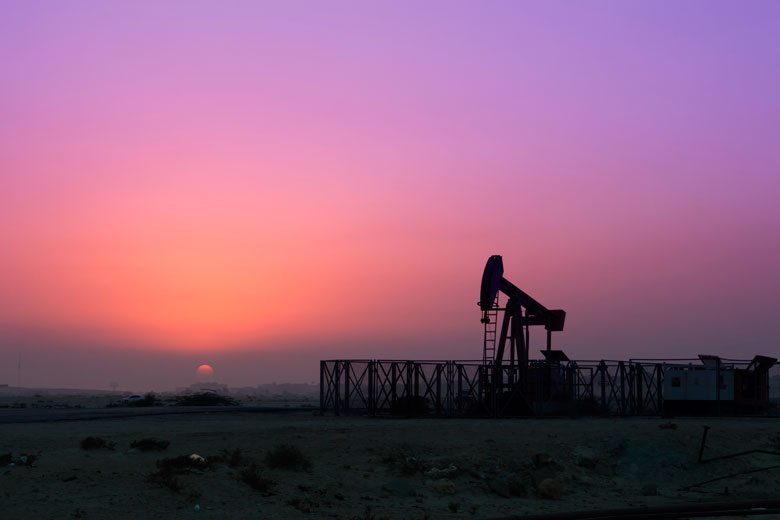

Libya’s National Oil Corporation (NOC) ended 2018 on a dark note, with the closure of the country’s most important oil field, Sharara, which has been shut down for nearly a month.
The prospects for 2019 look equally dark, despite NOC expecting to post its highest oil revenues since 2013, and launching a $600m tender for the construction of its planned new headquarters in Benghazi.
Speaking in the eastern city on 6 January, NOC’s chairman Mustafa Sanalla announced the state oil company had “achieved its highest levels of production and revenues since 2013”.
He did not give a figure for December revenues, but November saw $2.4bn - from oil and product sales, along with taxes and royalties from international oil companies.
Before the closure of the 350,000 barrel-a-day (b/d) Sharara oil field, Libya’s oil output had been averaging more than 1.25 million b/d, its highest level in years. Coupled with oil prices around $70 a barrel for most of the year, Libya’s total revenues from January to November stood at $22.16bn.
NOC projected the total for the year at $24.2bn, up 76 per cent year-on-year. This is the first year NOC has released figures on its revenues from oil sales, a commitment to transparency.
The five year high has been dearly bought.
“This was not easy. Our colleagues Abdel Aziz Bashir and Waheed Dardor sacrificed their lives - may they rest in peace. There are others who have been kidnapped, physically assaulted and intimidated. We thank every NOC employee for their continued service under these extreme circumstances,” Sanalla said in his statement.
NOC has repeatedly said it will not restart Sharara until the field's security apparatus is reformed. Sharara is made up of three producing areas, spread across the remote desert of the southwestern Murzuq basin.
Operated by a joint venture between state-owned NOC and a consortium of Total, Repsol, Statoil and OMV, the field has seen several closures over the past few years due to worker protests and attacks by tribal militias on export pipelines.
Sanalla has demanded the creation of security “green zones” with restricted access, around the fields. This is along with changes to the leadership of the field’s notorious Petroleum Facilities Guards, which has become more like a 1,500 man protection racket than a security outfit. The chairman will only sanction a restart to oil production once these reforms are implemented. That could take months.
NOC has been working on plans to boost its oil production capacity by more than a quarter to 1.6 million b/d by 2020, the same level as before the 2011 revolution. So far, Libya has had only a few small successes in raising capacity.
Plans include rehabilitating and expanding the country’s pipeline network - though few details have been released. However, output continues to be constrained by a chronic lack of investment and attacks on its infrastructure.
There are expansion plans in the works. UK oil major BP and Italy’s Eni agreed in October to work together to resume oil exploration work in 2019 at three areas — two in the onshore Ghadames basin in the northwest and one in the offshore eastern Sirte basin.
This followed agreements with two Russian energy companies, Gazprom and Tatneft, that are also lining up to resume exploration activities in Libya's oil and gas sector.
The deals are a clear recognition of the opportunities the country has to offer, but there remains the glaring obstacle to investment: “Lack of security is the most serious challenge not only to production but also to sustainable development projects and investor confidence. Security in the oil regions must be the top priority for everyone in this country,” Sanalla said.
| This article has been unlocked to allow non-subscribers to sample MEED’s content. MEED provides exclusive news, data and analysis on the Middle East every day. For access to MEED’s Middle East business intelligence, subscribe here |
You might also like...

Contractors win Oman Etihad Rail packages
23 April 2024

Saudi market returns to growth
23 April 2024

Middle East contract awards: March 2024
23 April 2024

Swiss developer appoints Helvetia residences contractor
23 April 2024
A MEED Subscription...
Subscribe or upgrade your current MEED.com package to support your strategic planning with the MENA region’s best source of business information. Proceed to our online shop below to find out more about the features in each package.






